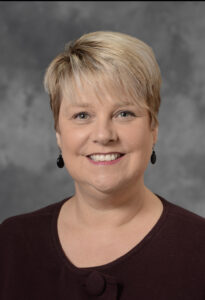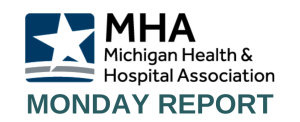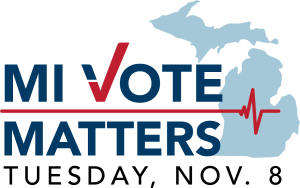
 The American Nurses Association – Michigan (ANA-Michigan) publicly announced their opposition Oct. 11 to Senate Bill 334 and House Bill 4550, which require state mandated ratios for hospital nurses.
The American Nurses Association – Michigan (ANA-Michigan) publicly announced their opposition Oct. 11 to Senate Bill 334 and House Bill 4550, which require state mandated ratios for hospital nurses.
The ANA-MI joins the MHA and the Michigan Organization for Nursing Leadership (MONL) in publicly opposing a one-size-fits-all state mandate. ANA-MI is a statewide professional nursing association with over 3,000 members, representing the needs and interests of all nurses. It has been a long-standing advocate for nurses to have safe staffing assignments while ensuring the safety of Michigan patients.
“ANA-Michigan wishes to empower all nurses in our state to be part of the conversation on safe staffing and how best to address it,” said Bridget Leonard, DNP, MBA-HCM, RN, CRRN, NEA-BC, president of ANA-MI. “We cannot address a long-standing problem across the continuum of care with a one-size-fits-all solution.”
ANA-MI emphasized staffing levels should depend on the following factors:
- Patient complexity, acuity, or stability.
- Number of admissions, discharges, and transfers.
- Professional nurses’ and other staff members’ skill level and expertise.
- Physical space and layout of the nursing unit.
- Availability of technical support and other resources.
“Addressing safe staffing is a complex process that should not be handled legislatively or without the input of nurses,” said Barbara Medvec, DNP, MSA, MSN, NEA-BC, President-Elect of ANA-Michigan. “If that’s the route, we’re setting ourselves back before we can put one foot forward in the right direction.”
Bridge Michigan also published Oct. 10 an op-ed from MHA CEO Brian Peters expressing the MHA’s opposition to the legislation and the need to support new and existing solutions that support nurses and maintain access to quality healthcare for all Michiganders.
Members with any questions related to the legislation and advocacy efforts may contact Adam Carlson or Elizabeth Kutter at the MHA. Members with questions regarding media or requesting additional communications tools should contact John Karasinski at the MHA.








 The Legislature returned the week of Sept.19 to continue work on several pieces of legislation that the MHA is currently monitoring. Committees met in both the House and Senate, taking up legislation that included several new bills supported by the MHA in the areas of behavioral …
The Legislature returned the week of Sept.19 to continue work on several pieces of legislation that the MHA is currently monitoring. Committees met in both the House and Senate, taking up legislation that included several new bills supported by the MHA in the areas of behavioral … The MHA participated in several advocacy events in September, providing opportunities for MHA members to share their experiences with both current and future decision-makers. Several MHA staff helped lead a virtual advocacy event Sept. 9 for the Michigan Organization of Nurse Leaders …
The MHA participated in several advocacy events in September, providing opportunities for MHA members to share their experiences with both current and future decision-makers. Several MHA staff helped lead a virtual advocacy event Sept. 9 for the Michigan Organization of Nurse Leaders …

 September 19. The 96-year old’s longevity, the mystique of the monarchy and Britain’s oversized role in Western culture will be table talk. …
September 19. The 96-year old’s longevity, the mystique of the monarchy and Britain’s oversized role in Western culture will be table talk. …

